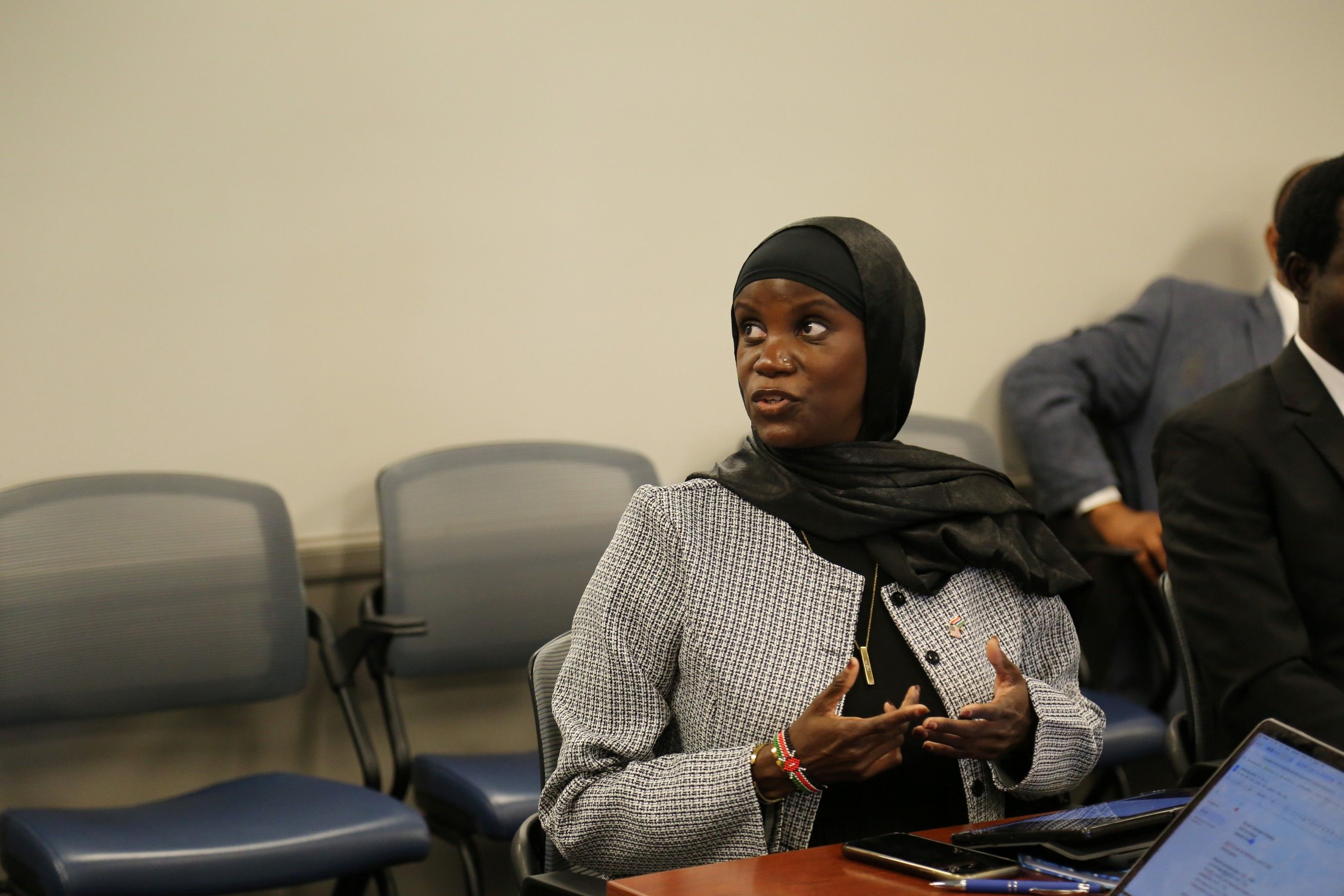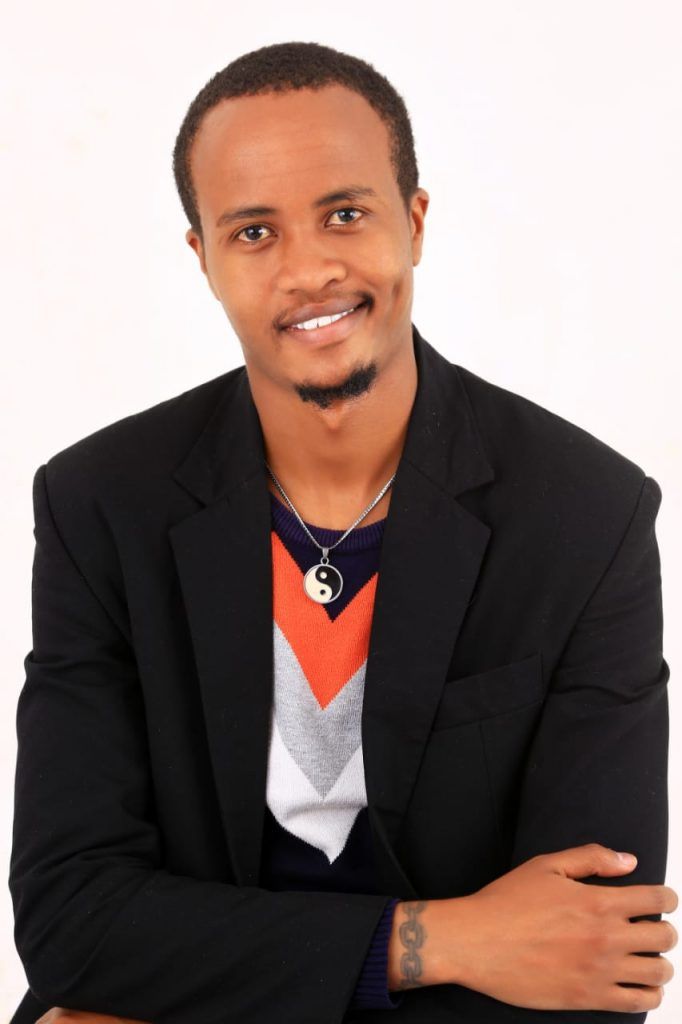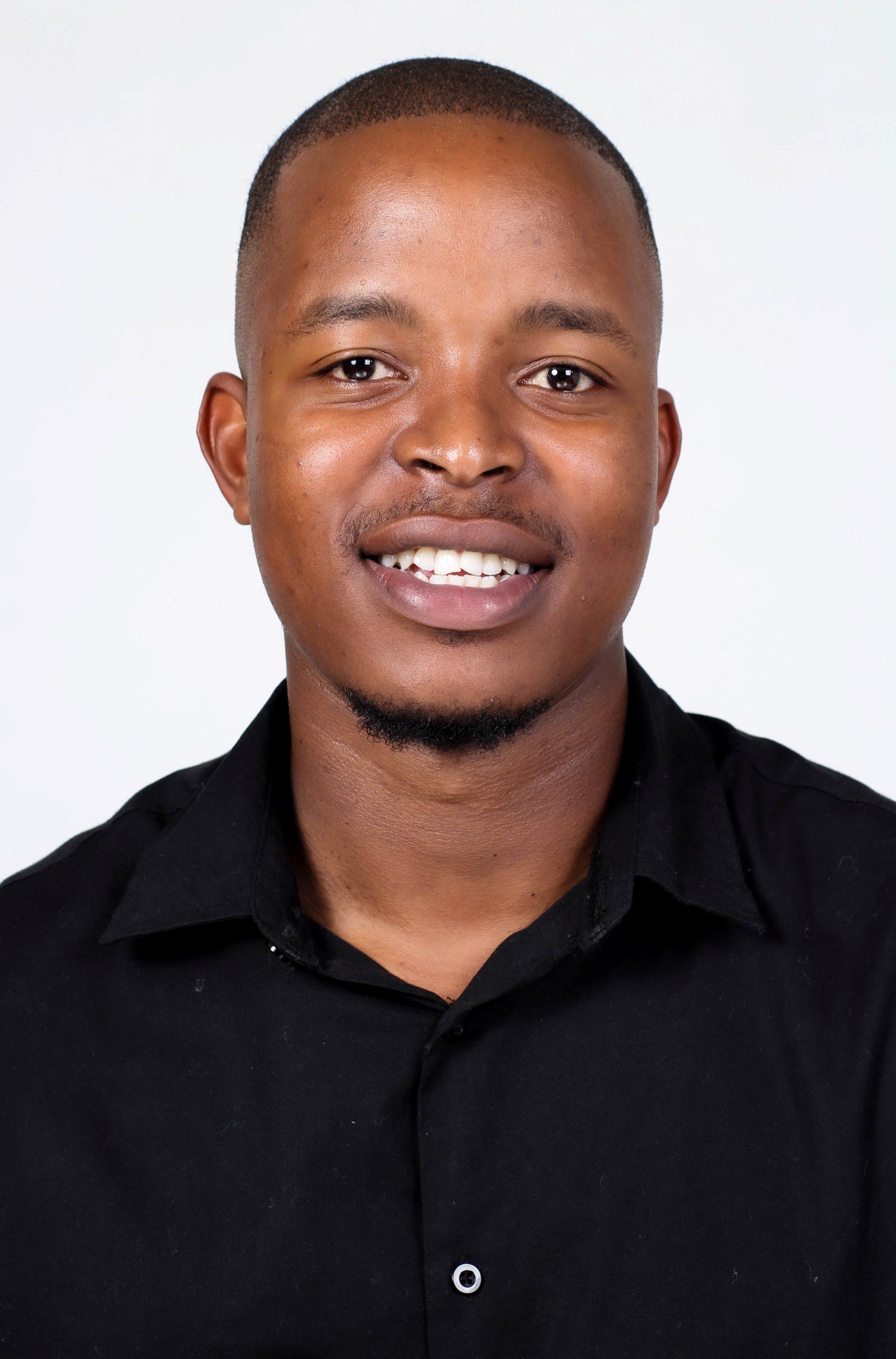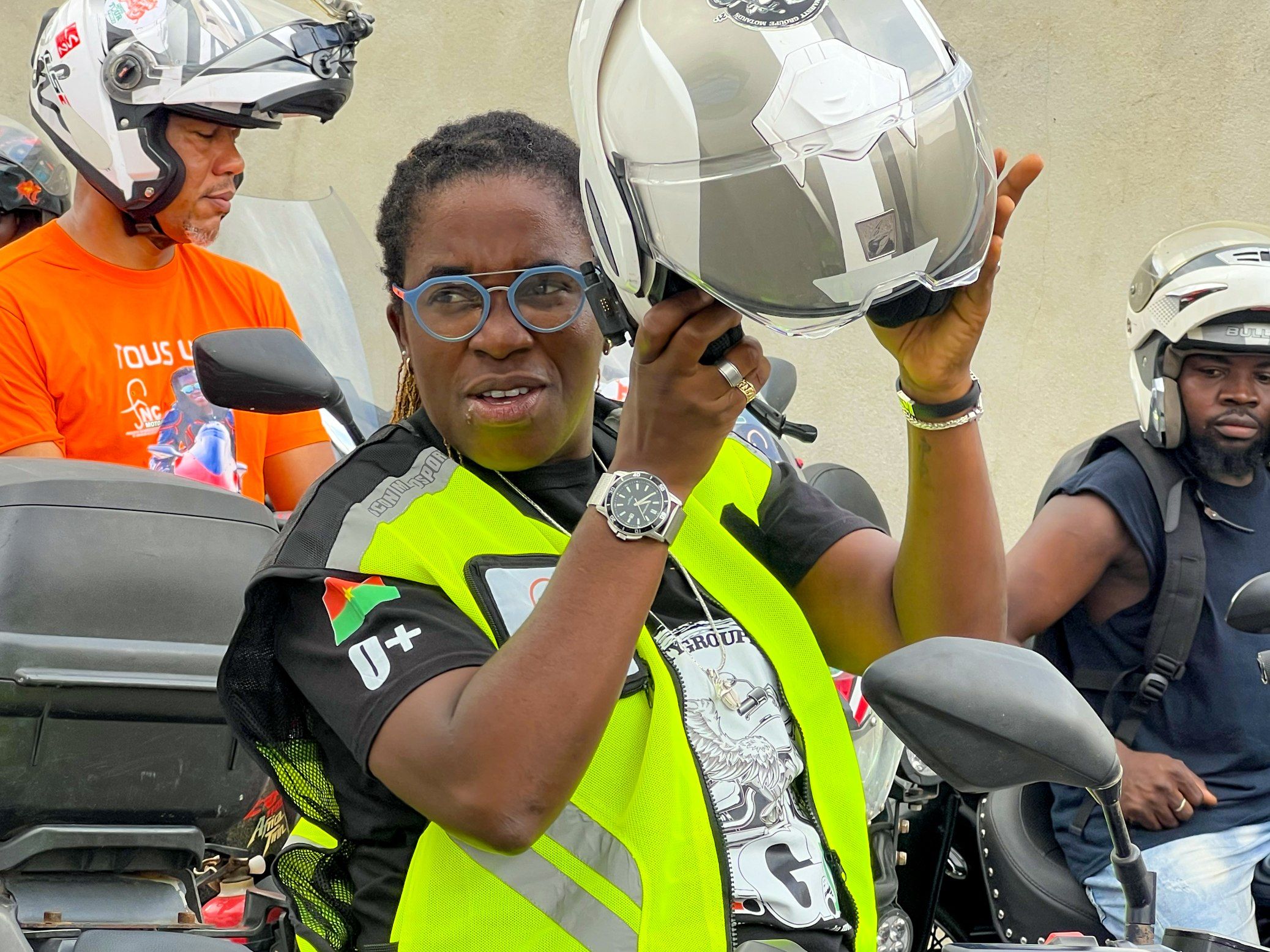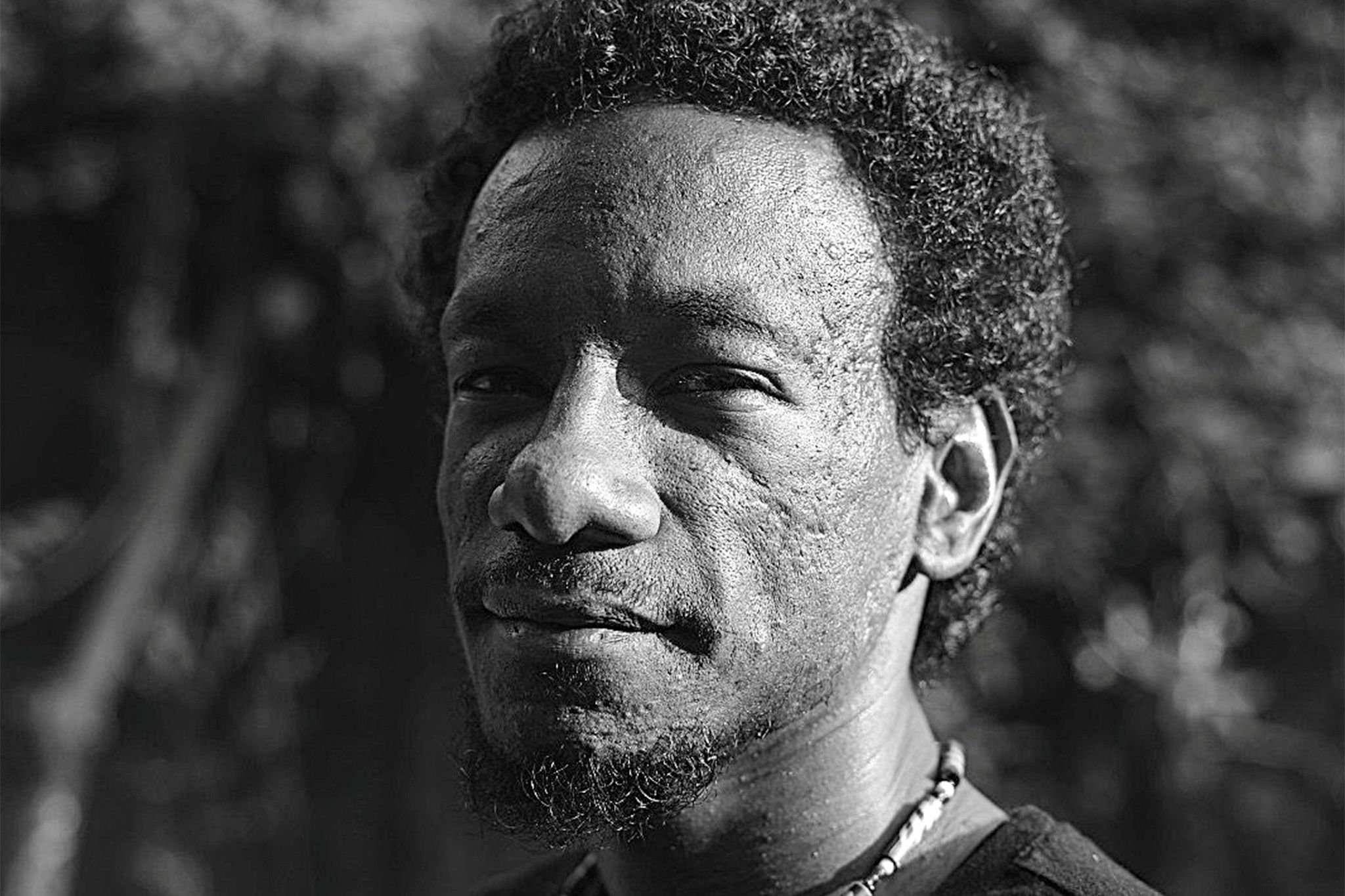It’s on a relaxed evening in 2002. Young Mamy Sira is only nine years old. She is a happy kid, living with her parents in Serrekunda, in the Gambia.
The family is indoors, passing the evening by listening to music from a cassette player.
Mamy Sira’s favourite song comes on. It’s called Labat, sung by the Senegalese singer Fatou Laobé. Mamy Sira moves her head in gentle sways, vibing to the song.
But when the song ends, she notices something unusual. Her family has rewound the music.
“Okay,” she says to herself. “They must love Fatou Laobé as much as I do.”
She listens to the song again. But it keeps playing on loop.
“Now this is weird. Replaying it once is okay, but twice, thrice? Something is off about it…” she thinks.
Little Mamy Sira turns her glance toward her family members. She stares daggers at them.
“Why do you keep rewinding the song by Fatou Laobé?” She asks them.
She notices the quizzical look on their faces.
What’s going on here?
To the family, the song ended a long time ago, and they’ve been listening to other songs.
Silence falls heavily on them. When they try to speak to her, to make sense of her strange remark, their hearts break. They realise what’s happening. Their little daughter, Mamy Sira, is losing her sense of hearing. Somehow, in a strange twist hard to explain away, the last song she listened to kept playing in her ear long after it ended. How could that be?
What Mamy Sira doesn’t know, however, is that this evening will mark her halcyon days when she could enjoy music.
***
I interviewed Mamy Sira in October 2025 over WhatsApp chats connecting Nairobi to the Gambia. She lives in Old Jeshwang, a little village near Serrekunda. It’s a village where seemingly everybody knows everybody.

She is now a deaf business owner, a 2025 Mandela Washington Fellow, and disability awareness advocate. Her advocacy efforts are online, via social media, where she enjoys sharing her lived experiences.
This story is told through her eyes. I reconstruct it from the WhatsApp chats we had for about two hours on a Tuesday afternoon.
Discovering she was losing her sense of hearing
The realisation that she was losing her sense of hearing shocked her. It worried her family, whose evening music time was brought to a halt with the introduction of a new problem—Mamy Sira had a hearing issue.
Mamy Sira never cried. But she was scared. Her little heart pounded in her chest as though a galloping horse was in there, racing hard.
“Maybe it’s just a cold,” she comforted herself. “Or Malaria. It can’t be something serious. Like a bad dream, this will soon go away.”
However, her sense of hearing deteriorated. Not at once, but gradually. Day by day, voices and noises faded, and all she could see were lips moving and streets busy but quiet.
Her parents, determined to help her, took her from doctor to doctor and hospital to hospital. But from the Gambia to Senegal, not one doctor could tell the definite cause of her problem. The assumption was that something was stuck in her ear. Or maybe it was dirt. But the truth was that it was neither. To date, she has never known the cause of her gradual deafness.
After months of hospital visits and a handful of doctors peering down her ears as though looking for something inside a well, Mamy Sira accepted her new reality.
I am deaf. This is really happening, and I have to accept it.
Mamy Sira’s parents weren’t ready to give up on their daughter. They kept taking her to new doctors. As months went by, the family’s financial resources diminished. Every new hospital visit meant a dip into their financial coffers for medical fees.
Mamy Sira began protesting. She concedes that she was a stubborn child. She asked her parents to accept that she was deaf, and to stop moving her from hospital to hospital.
If she cried over the situation that had usurped her former life, no one would have blamed her. It was a lot for a little girl of nine to take in. Heck, it also would have been a lot for an adult.
But Mamy Sira never cried. However, unbeknownst to her, she would years later cry for the treatment people doled out to her for being deaf.
An inclusive school that made life easier
At the time, Mamy Sira was in grade 6, having been promoted from grade 5 after stellar academic performance at Alhaji Mamour Secka, a primary school. In a few months, plans were in place to move her to a new school, Core Comprehensive High School, for her grade 7 onwards.
Her parents quickly reached out to the new school to explain that their daughter was now deaf. They wanted to know whether it would still be possible to join the school.
It was possible. The school promised to do whatever it took to include Mamy Sira and ensure she got the best education.
When she joined Core Comprehensive High School, both teachers and students communicated with her by writing down on a page or on the blackboard. Mamy Sira also developed a new skill: lip reading.
There is a fascinating scientific fact. When one sense is lost, the brain begins to rewire itself. It repurposes the neurons initially used for the lost sense, diverting them toward enhancing another sense. It’s called neural rerouting or neuroplasticity. It leads to enhanced functioning, endowing the individual with compensatory abilities. For individuals who lost their sense of hearing later in life, for example, they have their peripheral vision bolstered such that they can detect movement faster than other human beings who have all five senses.
These ‘compensatory abilities’ that came with Mamy Sira’s rewiring of the brain must have helped her, for she became a master in the art of lip reading.
She was so good at it that she understood what her teachers said in class. This helped her turn around a situation where one would think she’d be disadvantaged, into a winning academic streak. Mamy Sira always took position one or two whenever they sat for exams. She performed well in all subjects except Maths.
Her schoolmates, initially shocked that there was a deaf girl who could speak in their class, fell in love with her over time. They called her the ‘tiny, bubbly, deaf girl’. She was so talkative.
In many instances, others had to tell her that she was speaking loudly. When she tried to tone it down, they complained she was speaking too low. Balancing her tone is something she struggles with to this day. It’s hard to know when you can’t hear yourself speaking. To combat this problem, Mamy Sira always informs her audience to let her know when she’s too loud or too low. That way, she tries to adjust to the right volume when speaking.
Her bubbly and vivacious nature, coupled with the fact that she was the youngest in the school, made everyone love her. Her schoolmates all wanted to be friends with her.

The situations that barred her from attending university
Unfortunately, when she finished high school, she was unable to join a university. The issue blended a lack of proper inclusivity for deaf students with financial constraints that blocked her from higher education.
To date, Mamy Sira sometimes gets lost in thought, mulling over how far she’d be in life now if she had gone to university like her peers. And hope rises from the optimism vaults of her mind that maybe, someday, she will get the courage and resources to pursue higher education.
In 2012, she took a six-month-long course on computer literacy, and then started selling products like lotions, durags and jewellery, which her cousin and a friend got for her from the US. Her mother also bought her a stock of clothes and shoes, which she earned a living selling in the Gambia.
She also read a lot; novels became her friends. She’d meet someone and randomly ask, ‘Do you have a novel I could borrow?’ If the person answered no, Mamy Sira went on to ask, ‘What about your siblings or friends?’ Whenever she buried her head deep in novels, nothing else mattered.
Their insensitive treatment hurt her
There were instances when Mamy Sira cried as an adult. Unlike the childhood world, where everyone had made her feel she belonged, the adult world was cruel at times.
On one occasion, people accused her of pretending she couldn’t hear. They couldn’t believe she could lip-read, therefore writing her off as a con who faked not hearing.
In another instance, she got into an emotionally-charged argument with a relative. In the heat of the moment, as words were bandied, the relative said to her, “This is why you are deaf!”
The words cut deep, and Mamy Sira wondered whether deafness was her punishment for arguing.
There were other times when people said nasty things about her in her presence. They did so, confident the deaf girl couldn’t hear them. But she read their lips—it was and is her super power—and confronted them.
They, however, denied the accusations and accused her of misreading their lips. Mamy Sira knew they were lying, and besides, some of the people who had been around later confirmed to her that she was right; the dimwits had been talking nastily about her.
These instances brought tears to her eyes, and they’d spill over and glide down her cheeks.
The birth of the business Sira’s Crakes
The year 2020 orchestrated the emergence of Mamy Sira in the entrepreneurial world. It all started with a simple, fun recipe for an unbaked cake that she made with her sister-in-law.

When the cake came out great and delicious, Mamy Sira posted about it on social media too many times that it couldn’t go unnoticed. Her friends and followers soon wanted a taste of the cake. Her many posts had whetted their appetites.
Mamy Sira soon started getting orders for the cakes. It became a business. Since she had a tendency to put cracks on the cakes, someone posted about the fancy cracks on her cakes. Her cousin advised her, “How about, for the name of your new business, we combine cracks and cakes, to have…Crakes?”
Mamy Sira then threw her name, Sira, into the idea. That’s how the business Sira’s Crakes came to be.

She has since put time, energy and resources into the business. Sometimes the returns are great, but other times they aren’t.
There is also the challenge of being a deaf business owner. Most people have a penchant for placing orders on calls or WhatsApp voice notes. Despite Mamy Sira’s efforts to remind her customers, online, that she is deaf and they should therefore place their orders through text or WhatsApp messages, some still use voice calls and WhatsApp voice notes.
Participating in the Mandela Washington Fellowship
In 2024, after a great deal of convincing by a dear Senegalese friend, Mamy Sira applied for the Mandela Washington Fellowship for Young African Leaders. A pessimistic voice inside her whispered that she wouldn’t be considered. After all, she was used to not being considered for professional opportunities because she was deaf.
That voice was wrong. Mamy Sira was awarded the Fellowship, which saw her pursue business and leadership training for six weeks in 2025 at the University of Texas at Austin. Her online work in raising awareness on disability, paired with her creative cake business, had made her application strong and competitive.

Mamy Sira is forever grateful to the Fellowship and to the University of Texas at Austin for a once-in-a-lifetime professional experience where she felt included and supported. Throughout the Fellowship, they provided her with a transcription device attached to her phone, enabling her to read words as someone spoke in real time. For the first time in her life, she enjoyed learning in a university classroom.
Mamy Sira’s dream is to one day pioneer the same technology in her country, the Gambia, to make it easier for the deaf to be part of conversations.
The Mandela Washington Fellowship made her realise that while she lives in an ableist world, there are people willing to offer her space and inclusion. She also learned that her only barrier to the personal and professional life she desires is herself. She must break out of her shell and go after her dreams.
You can connect with her on LinkedIn, here.
***
This story is part of a series Lesalon Kasaine is writing, of the stories of select 2025 Mandela Washington Fellows. Read more about the Mandela Washington Fellowship for Young African Leaders, a program run by the US Department of State. Lesalon was himself an MWF 2025 Fellow.

